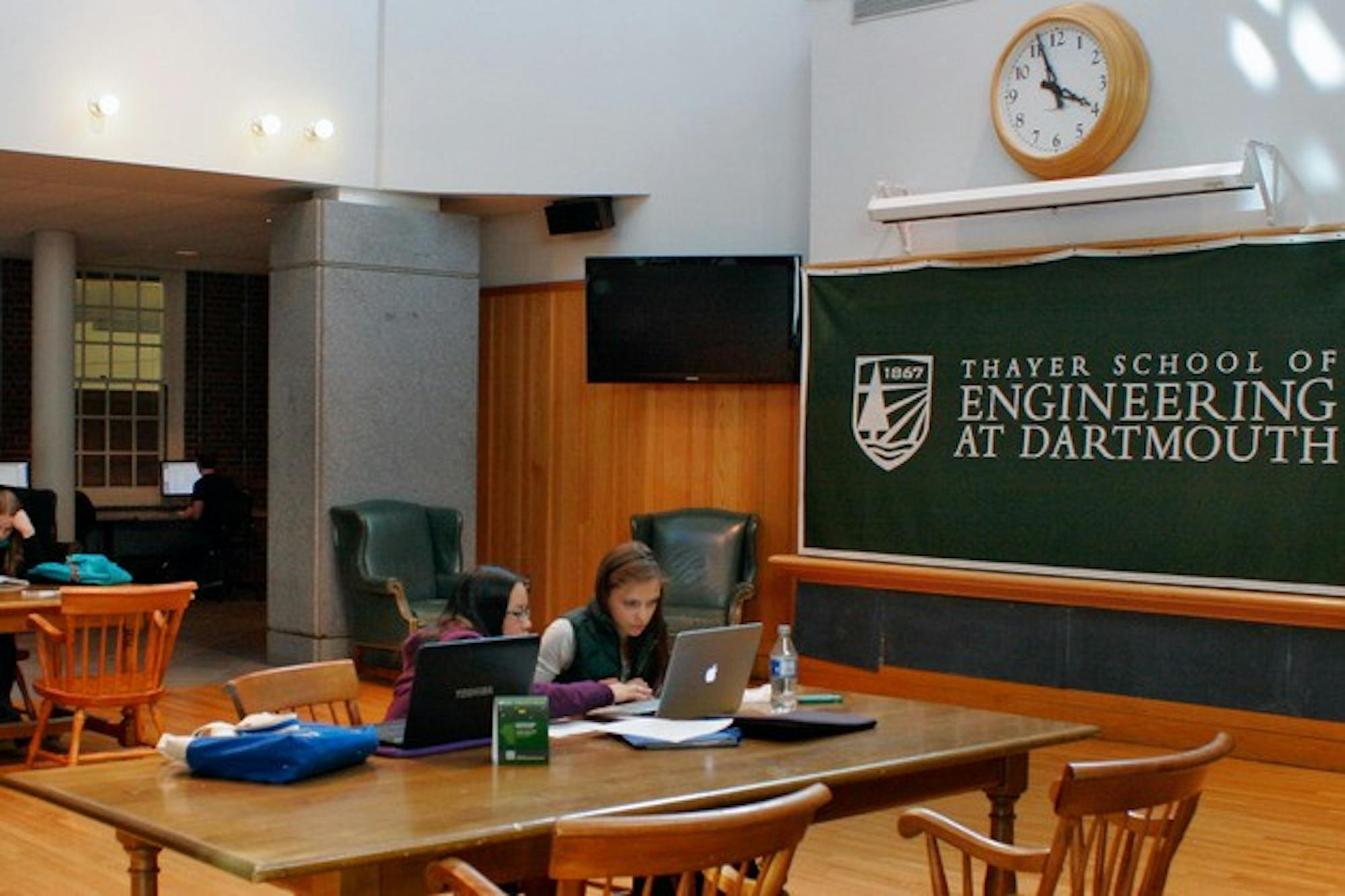But then, before I knew it, freshman year went by in an instant. I was a sophomore, the weather got cold and my fifth term at Dartmouth was upon me. Many aggressive blitzes from the Deans Office and the Registrar later, I found myself miraculously declaring the same major that I had checked off on the Common App two years ago.
I call it miraculous because I wasn't a particularly self-aware or insightful 17-year-old. In addition to my notorious indecisiveness, the sheer number of things worth studying at Dartmouth could have easily led me to fall in love with something entirely different. Maybe I just got lucky, but as I compare the plans of my friends from freshman year to now, very few of them are actually still working on the economics majors or pre-med requirements that they claimed to be pursuing at the beginning of their Dartmouth careers.
There is nothing wrong with having a change of heart at some point in one's college experience it is safe to say that most students end up graduating with a degree in something they are passionate and excited about. But the path to getting there isn't always simple or timely sometimes, it takes more than a few terms to figure things out. Just as plans can change a great deal between Trips and sophomore winter, they do even more by the time it's senior spring.
Eric Wu '13 thought he had it all figured out by freshman year. Certain that he would declare an economics major and end up in finance, his goal was a pragmatic one: to get a job.
"When you're deciding a major, there are two goals," he said. "Deciding what you want to study and what you're interested in, but then figuring out what's actually going to help you in life after Dartmouth."
Wu's freshman year coincided with the 2009 recession, so his concerns about the competitive nature of the job market are understandable. While he found the finance world exciting, he was still encouraged to take classes in government, history and theater. However, it wasn't until he took Introductory Psychology his sophomore fall that the possibility of actually pursuing something else became real.
"I had to ask myself, do I want to take six classes in econ or in psych?" Wu said. "Now that I'm finishing psych, I'm having so much fun with it. I read the textbooks because I want to and go to class because I'm engaged in the material."
Shelley Wenzel '14 was less certain about her academic and career aspirations when she began studying at Dartmouth. While psychology and Spanish both interested her early on, it was environmental studies that captured her full attention by the time she declared her major sophomore year.
While Wenzel was fascinated by the subject matter, however, it wasn't long before she realized that it did not necessarily fit well with the skill set she would need after graduation. Now in her junior spring, she is pursuing an engineering major with environmental science electives.
"It wasn't so much that my aspirations changed," she said. "I just realized that I wanted to focus on more of the concrete, problem-solving work related to the environment. Environmental science is more the policy side of those issues."
Wenzel is now plans to remaining at Dartmouth for two extra terms, followed by a fifth year at the Thayer School of Engineering. This past fall, she worked at a non-profit in San Francisco that focuses on illegal wildlife trade, further affirming her passion for the environment.
Wenzel has run into some difficulties trying to complete her new major in a timely manner.
"Completing prerequisites is frustrating because they aren't offered every term," she said. "I have to take Physics 13 before I can take 14, but that means waiting until the next time the course is available."
Wenzel hopes to go to graduate school, where she will be able to further specialize her interests.
Molly Davis '10 did not decide on her second psychology major until her last year at Dartmouth, though she was already passionate about her English major.
"I had always felt comfortable in the English department, and just sort of fell into filling out my major card with that," she said. "I loved the format of the classes because they were discussion-based."
Davis pursued minors in art history and psychology, spending sophomore winter interning at a museum in Jacksonville, Fla., and considered careers in art. It was a trip to Wheelock Books with a friend before the start of her junior spring that led to her change of plans.
"I remember one of my best friends had a book for a psychology seminar by Dan Gilbert and she couldn't stop talking about how cool it would be," she said. "I thought, maybe I can switch around my classes so I can take it. I ended up finishing my junior year off on such a high note with the psychology department."
Davis spent her last summer in college working at a girls' summer camp in North Carolina that she had once attended herself. After reflecting on the direction of her life after graduation, she came home and decided to drop her art history minor and instead complete a double major in psychology and English. After working as a research assistant at Massachusetts General Hospital for two years, she is now completing her PhD at the University of Virginia in clinical psychology.
Ironically, the title of the book that inspired Davis' change of heart is one that could easily be appreciated by any Dartmouth student, with a perhaps unanticipated passion for what they do and a desire to translate that zeal to the world outside of Hanover.
It is called "Stumbling on Happiness."




